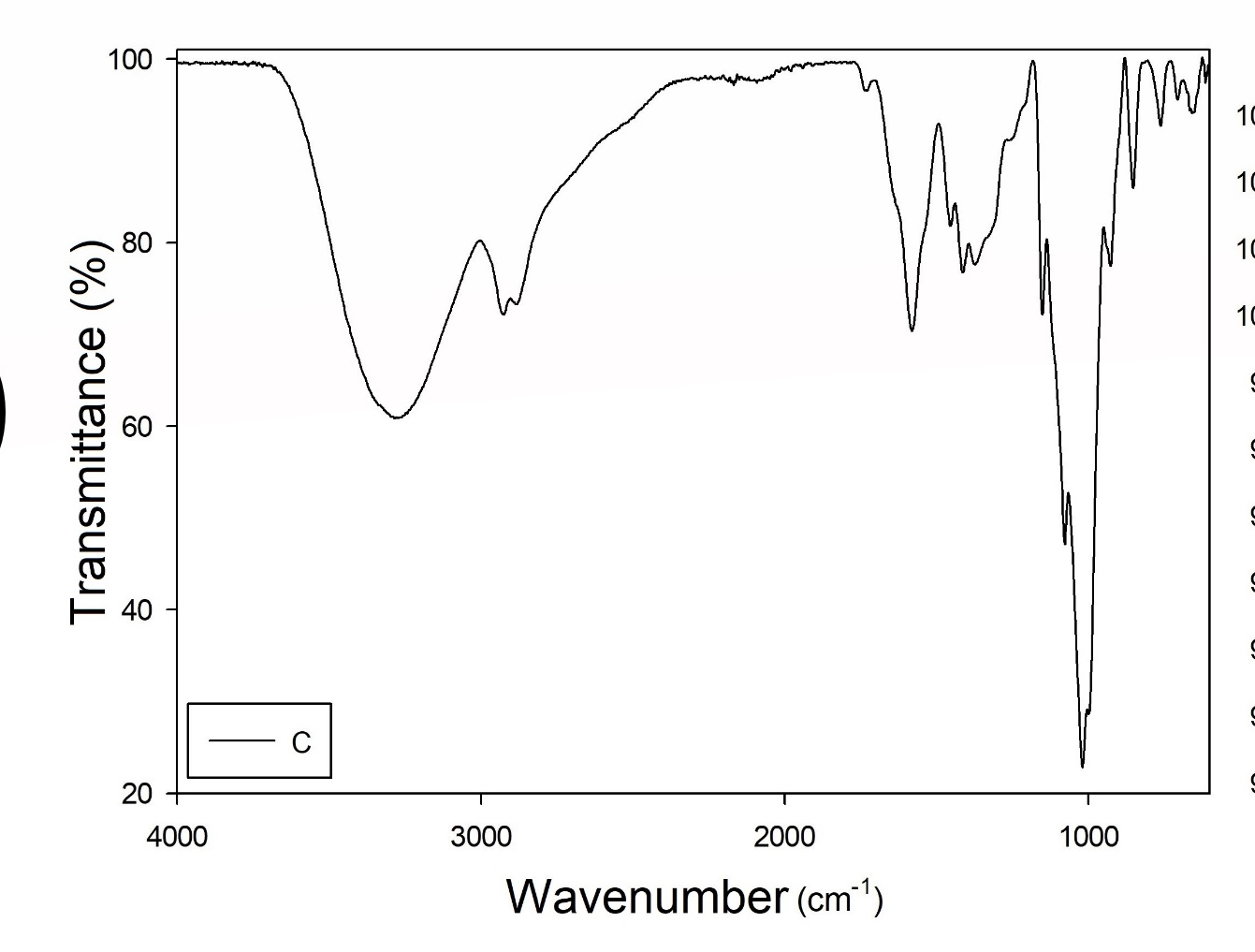 |
|
In this work we present a simple way to improve the dispersion of titanium dioxide (TiO2) particles inside chitosan/potato-starch films by chemical modification of the surface of these nanoparticles via silanization. The films increased in luminosity due to the modified particles,
in addition to the fact that the water activity remained within the acceptable values for microbial non-proliferation. The thermal analyzes indicated that the addition of TiO2 increases the glass transition temperature in the film, and the addition of functional groups such as those of the silane, give mobility to the polymer chains during the rise in temperature. The mobility of the polymer is related to a decrease in the value of the temperature necessary to reach a vitreous state in the films that contains silanized particles. The most important result was that the existence of these functional groups reduced the enthalpy of decomposition of the films making them more stable for thermal degradation. The photo-oxidation results suggested the passivate of TiO2 thanks to the presence of silane, which implies that it is a more stable film against UV radiation, avoiding the negative effect of unmodified TiO2 particles.
Keywords: Chitosan, Potato-starch, Titanium dioxide, 3-aminopropyltriethoxysilane.
|
|
 |

